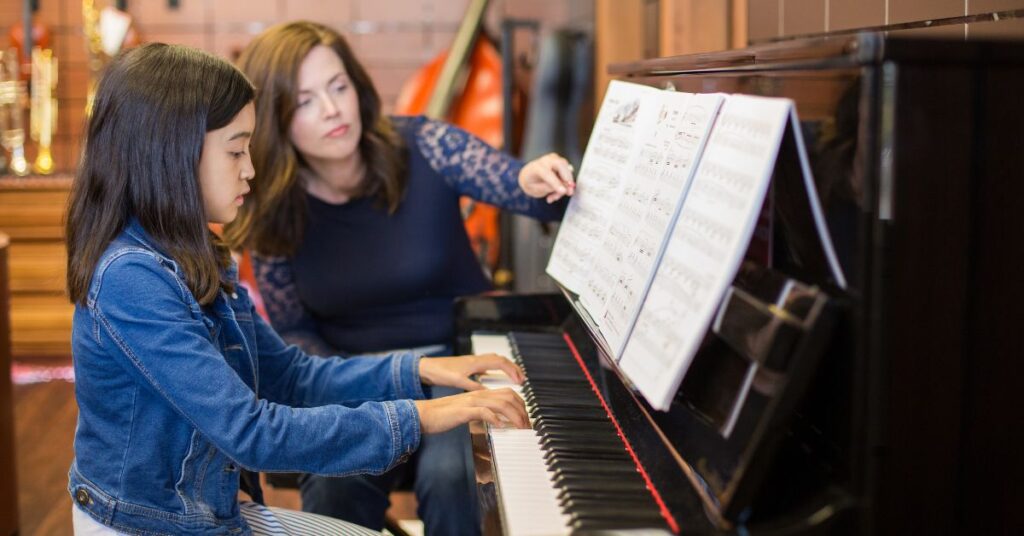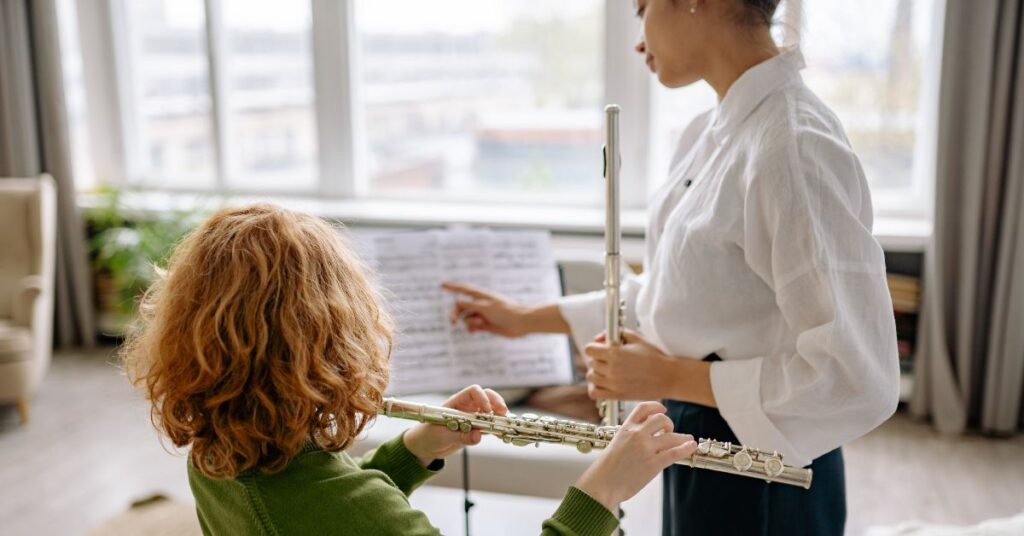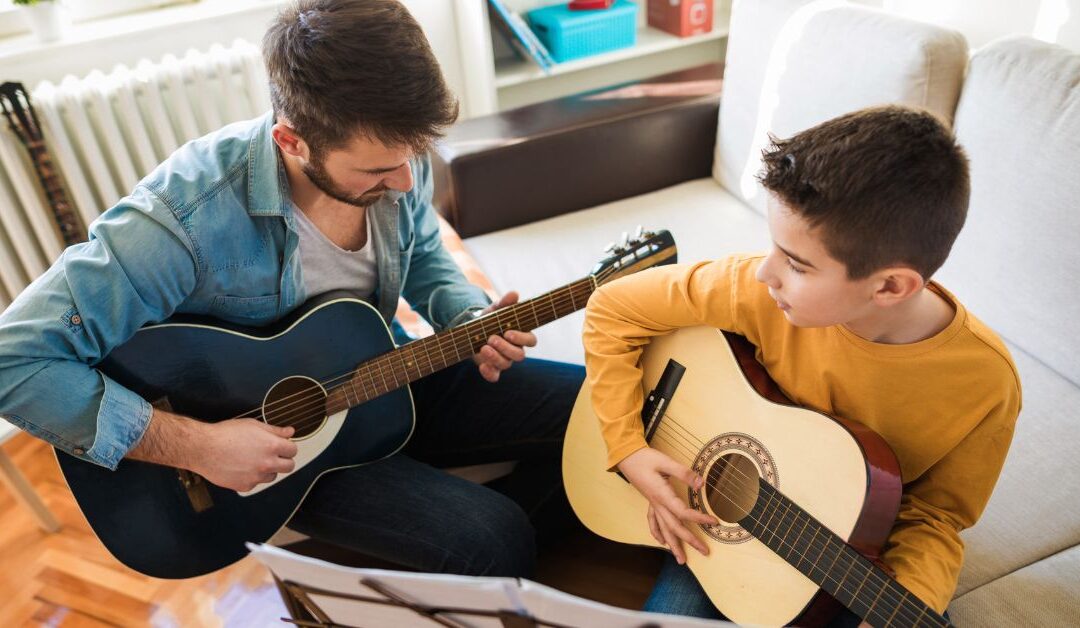Music can bring such joy to our lives, and it can especially provide so many benefits to people with autism. If your autistic child loves music, have you thought about encouraging them to learn to play a musical instrument?
Autism and music
Many people with autism have a special connection with music. It can help them better understand their own emotions and those of others. Through music therapy, it can help them cope with anxiety, learn social skills and improve their communication.
Our son J loves music and has since he was very young! He is an avid singer, and singing is his special interest. At age 7, he took piano lessons but decided to stop after about six months. Yet, he’s had a keyboard in his room for years and will play certain songs on it by ear since he has perfect pitch. He wants to be a music therapist for a career, so now his taking lessons to learn piano and guitar from his dad in addition to vocal lessons with a coach. He also sings in his high school’s advance choir. There are so many benefits that come from music and learning to play an instrument. I’m so glad that he loves it so much, and that it has given him so much joy and a way to connect with others.
Benefits of learning to play an instrument

Learning to play an instrument offers many benefits that go beyond just listening to it. (Although listening to music alone has many benefits as well!) Check out these benefits:
1. Helps autistic children express themselves
Playing a musical instrument helps autistic children express themselves when other forms of expression and communication can be difficult for them. This is especially true for those who are non-verbal.
2. Assists them with attaining goals
When learning a musical instrument, you are always working toward small goals. This can help with an autistic child’s ability to achieve goals, gain confidence and develop social skills.
3. Improves fine motor skills and coordination
Learning to play a musical instrument takes physical ability and coordination of different muscles. This can help many autistic children who have development delays in motor skills.
4. Increases interactions with others
Music is universal, and most people feel some sort of connection to it. Therefore, it can open up social interactions between your autistic child and others. If your autistic child learns to play an instrument by participating in their school band, then that can provide opportunities for friendships and positive interactions with peers.
5. Helps improve behavior issues
Learning to play an instrument has shown to decrease behavior issues in many autistic children. By having something constructive and positive to learn and focus on, they generally improve their social skills, cognition and attention. These all help with their behavior.
How to figure out which instrument your child should learn to play

If you want to encourage your autistic child to learn to play an instrument, you need to figure out which instrument would be a good fit.
First, if your child has hearing sensitivities, you’ll need to take that into account. Some instruments may not be a good fit because the noise would be too bothersome to them.
Second, if your child is drawn to a certain type of instrument or sound, explore that more with them. Listen to music together and talk about what sounds are the most interesting to your child.
Third, head to a music store and have them try some different instruments. They may discover one that really resonates with them.
There are no right or wrong instruments for your child. And if your child loves singing, consider that an “instrument” too! Maybe their school choir and/or vocal lessons would be a good fit for them!
How to find an instructor for music lessons
Finding a good instructor is important. You definitely want one who has a lot of patience and truly enjoys working with children and teens. We found our son’s vocal coach through his choir director at school, and she is such a perfect fit for him. She is so patient and truly enjoys working with him. She is complimentary, yet she knows how to give constructive criticism in the right way to make him work to improve. It has helped him obtain gold medals at his choir and solo competitions, so it definitely works!
If your child’s school has a band, reach out to the band director to ask for musical instructor recommendations. They usually have a list available. If your school doesn’t have a band, then ask friends and relatives for recommendations if they have children who are taking music lessons. You can also ask on the NextDoor app for recommendations from your community.
Additional Resources
If you want to learn more about music and autism, check out these additional resources.
Autism and the Power of Music: A New Approach to Help Your Child Connect and Communicate (affiliate link)
Music Helps Autism (affiliate link)
The Easiest Songbook. 58 Simple Songs without Musical Notes for Boomwhackers®, Bells, Chimes, Pipes: Just Follow the Color Circles (affiliate link)
Kids Musical Instruments (affiliate link)
Electronic Drum Set for Kids 9 Drum Pad (affiliate link)
RockJam 61 Key Keyboard Piano (affiliate link)
Has your child learned to play a musical instrument? If so, what has your experience been like? Leave a comment below to encourage and share with others along this journey!







